Division of Continuing and Extended Education
Executive Director
Nancy M. Pratt, Ph.D.
n.pratt@csuohio.edu
Systems Engineering

Systems Engineering:
Designing Distributed Energy Systems for Resilient Power
What is Systems Engineering?
Systems engineering is the discipline of designing and managing complex systems throughout their lifecycle. It ensures that diverse technologies, processes, and human factors work together as one integrated system. By applying principles such as requirements analysis, modeling, risk management, and lifecycle integration, systems engineers build reliable, adaptable, and sustainable solutions.
Why Energy Systems?
Distributed energy networks are among the most urgent and complex systems of our time. They involve multiple subsystems, including renewable generation, storage, traditional power sources, controls, and regulatory frameworks, that must be integrated into resilient, cost-effective, and environmentally responsible designs. For universities, hospitals, military bases, and communities, these systems are not optional; they are critical infrastructure.
Microgrids as a Foundation
Microgrids provide a real-world example of applied systems engineering at work. They are localized energy systems built from diverse resources (solar, wind, diesel, natural gas, hydrogen, geothermal, and others) that can operate connected to the main grid or independently in “island mode.” Their design demonstrates the challenges of systems integration: balancing technical, economic, and resilience requirements while preparing for disruption.
Systems Engineering Certificates at Cleveland State University
This program prepares professionals to apply systems engineering tools and methods to real-world challenges, with distributed energy serving as the applied domain. Participants will engage in modeling, trade-off analysis, and system design practices that extend far beyond energy, equipping them with transferable skills relevant across industries.
See the Department of Energy definition of Microgrids here.
Developed in partnership with:
- CSU’s Washkewicz College of Engineering
- CSU's Center for Integrated Modeling for Energy, Resilience, and Sustainability (IERS)
- Telepath Systems, Inc.
- The International Council on Systems Engineering (INCOSE)
- The Cleveland Engineering Society (CES)
- And leading energy and systems engineering professionals
Systems Engineering with a Foundation in Microgrids is an introductory course for aspiring energy systems workers entering the sector or industry professionals seeking insights and decision support. It provides a practical overview of microgrid technologies, their applications, and their growing role in modernizing and supporting the energy sector.
Program Objectives: This credential incorporates Systems Engineering (SE) principles, a transdisciplinary, integrative approach designed to help teams manage complexity, design, and change in increasingly interconnected technical systems. By focusing on how individual components work together to fulfill the goals of the whole system and respond to stakeholder needs, SE ensures effective collaboration and system performance.
INCOSE, the leading global professional society, advances these practices through standards and MBSE (model-based SE methods), including the use of Digital Twin modeling and simulation capabilities.
The CSU Systems Engineering certificate helps participants build critical expertise in sustainable energy systems, supporting knowledge acquisition in two key areas:
BLOCK 1: This section provides a basic understanding of electricity and its application to modern society's needs, including its origins and history of evolution to modern grid architectures and microgrid forms.
BLOCK 2: Introduces systems theory, principles, and methods, with a special focus on their applicability to Microgrids through modeling and simulation capabilities.
Upon completing this Certificate, students will be eligible to apply for the INCOSE Associate Systems Engineering Professional (ASEP) certification, which provides a dual certification opportunity.
Key Features:
- Learning Modeling & Simulation with Digital TWINS for Microgrids
- Application of Systems Methods for Analysis and Design, with Models

Recommended prerequisites:
- Completion of undergraduate (sophomore level) engineering coursework– OR
- Completion of a technical Associate Degree from an accredited community college – OR
- Military experience in a technical capacity in energy – OR
- Equivalent industry experience in a technical capacity
Cost and Registration
$995 Introductory Pricing
Standard pricing after the October cohort is $1,540.
Course Dates Foundations 1: October-November -- Registration closes September 29, 2025
Synchronous, Online: October 3, 10, 17, 24, 31
Optional In-person Lab Day, November 7th from 1-5 p.m.
To register, click the "October Registration" button and follow the prompts.

Discount for organizations enrolling three or more employees. Contact Nancy Pratt at n.pratt@csuohio.edu.
Expert Instruction
The course is developed and taught by leading faculty and industry experts, blending theoretical foundations with practical skills.
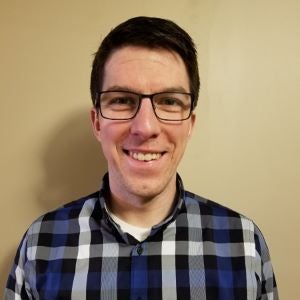
Jeremy Ross
Jeremy Ross, CSEP, is a Senior Systems Engineer at Ford Motor Company’s Research and Advanced Engineering division, where he leads automated-driving system architecture and functional safety development. He is an adjunct instructor at the University of Detroit Mercy, focusing on model-based systems architecting and coupled architecture-simulation methods using SysML. Jeremy holds degrees in Mechanical Engineering (BSE, MSE) from the University of Michigan and in Product Development (MS) with a Systems Engineering certificate from the University of Detroit Mercy. He is a Certified Systems Engineering Professional (CSEP) through INCOSE, the International Council on Systems Engineering.
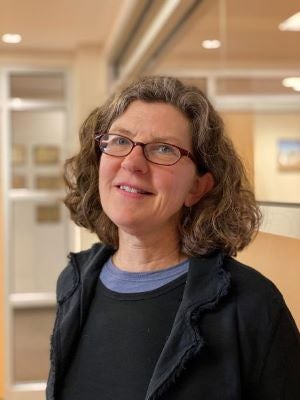
Julie Lindstrom
Julie Lindstrom has worked as a college professor, a film electrician, a commercial electrician, a photovoltaic system installer, and now as an electrical engineer for Karpinski Engineering in Cleveland, Ohio. She holds a BA and MA in Philosophy, a PhD in radio-TV film, and a BEE in Electrical Engineering.
Guest Lecturers
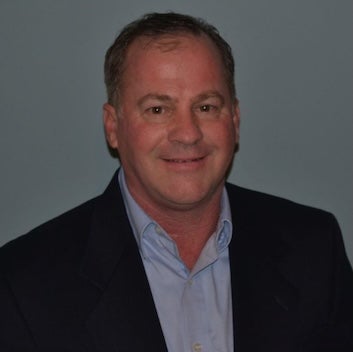
Casey Shull (PhD, MS, MBA, PMP – Adjunct Professor, Purdue University)
Dr. Shull has 30+ years of experience and a passion for resilient power systems, creating innovative solutions for commercial and industrial customers. He has a PMP certification and a PhD in Analytics and Systems Engineering from Purdue University, where he also teaches as an Adjunct Professor.
Dr. Shull has invented and patented Dimensional Metering, a method to identify different sources of electrical production and consumption, and developed the world's only electrical blackout recovery system for critical infrastructure processes, using a model-based SysML approach. He has led and supported multiple projects in alignment with various federal and state specifications, as well as Smart Grid applications. Casey has also published and presented his work in several journals and conferences, and received awards for his contributions to the field.
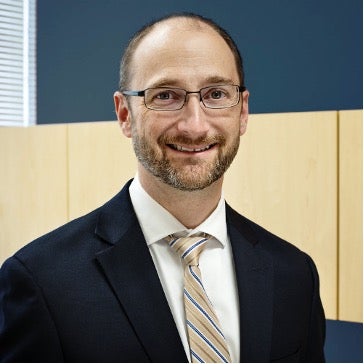
Joe Hofstetter P.E., CEM,
Principal, Director of Building Performance and Sustainability - Karpinski Engineering
Mr. Hofstetter helps organizations maximize the use of their building assets, focusing on energy, sustainability, and system operational improvements. Big-picture thinking is an integral part of his job. Every organization has different priorities, whether it’s facility improvements or sustainability initiatives, and he works with clients to define their building performance goals, develop and implement solutions, and then measure the results.

Matthew Hause - Principal Consultant at SSI.
Mr. Hause was previously an Engineering Fellow at PTC, a member of the OMG SysML specification team, and the co-chair of the UAF (Unified Architecture Framework) group. He has been developing complex, real-time systems for over 40 years. He started out working in the Power Systems Industry and has been involved in Process Control, Communications, SCADA, Distributed Control, military systems, and many other areas of real-time systems.
His roles have varied from project manager to developer. His skills include mentoring, sales presentations, standards development, and training courses. He has written a series of white papers on project management, Systems Engineering, architectural modeling, and systems development with UML, SysML, and Architectural Frameworks. He has been a regular presenter at INCOSE, the IEEE, BCS, the IET, and other conferences. Matthew studied Electrical Engineering at the University of New Mexico and Computer Science at the University of Houston, Texas.
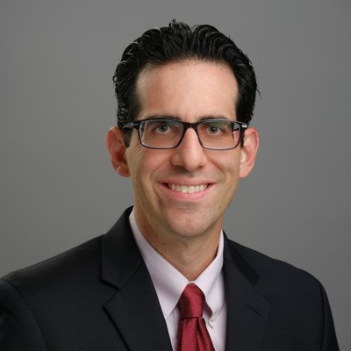
Chris Evanich (MBA) New Energy Landscape Commercial Leader at Schneider Electric
Mr. Evanich is an electrical engineer with two decades of experience in the electrical power industry and has developed and financed dozens of distributed generation projects across multiple technologies around the world. He has delivered more than 100 industry presentations and has been published in more than a dozen different publications worldwide.
He holds a Bachelor of Science in Electrical Engineering from Cleveland State University and an MBA from Case Western Reserve University.
In-Demand Jobs
CSU's stackable Microgrid Microcredential delivers cutting-edge, job-ready training aligned with industry needs and workforce opportunities.
Financial Assistance: Are you a dislocated worker interested in future-forward job opportunities? Retrain to Enter the Energy Industry! The Foundations 1 certificate course is approved on Ohio’s Workforce Inventory of Education and Training (WIET) and is eligible for WIOA funding. If you are a job seeker or dislocated worker, you may qualify to take this course at no cost through your local OhioMeansJobs center.
Cuyahoga County residents can complete the WIOA Training Request Form HERE
Executive Director
Nancy M. Pratt, Ph.D.
n.pratt@csuohio.edu